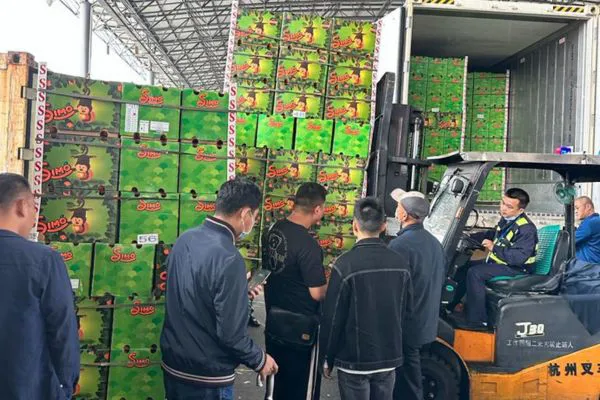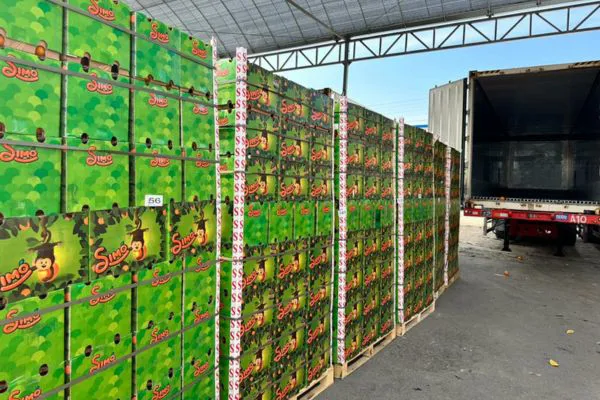This year's citrus season in Egypt is marked by high volumes, but an abundance of small sizes to the detriment of large and medium sizes. For exporters focused on the Chinese market, this situation is having a major impact on business. Amr Abdelhafiz, Managing Director of the Egyptian exporter Kingo, gives market updates.

"The Chinese market is very selective in terms of size and quality. The standard requirements are mainly 56/64, although Chinese buyers accept 72/48 up to 30% per container. At Kingo, we haven't pressured buyers to load more small sizes this year, but we've made our best efforts to meet customer requirements and guarantee as many large sizes as possible for China."
This situation has led to a drop in Egyptian citrus exports to China this year. In the case of Kingo, this represents 60% less volume than last year, according to Amr. According to other professional statements, the drop is more or less of the same order for other Egyptian exporters doing business with China.

On the upside, logistical conditions for exports to China have improved significantly, Amr assures. "Normally, it takes between 26 and 30 days in transit to deliver to China. Direct ships can reduce transit time by 7 to 10 days, but they are more expensive and not always available. Port congestion and loading delays are other reasons for lost time. But this year, we have seen a marked improvement in the fluidity of logistics operations."
Price-wise, the Chinese market is more attractive than other destinations, offering good prices to both Egyptian exporters and Chinese importers, assures Amr: "This is what I found out during a recent visit in May 2023, during which I met customers in Hong Kong, Guangzhou, and Shanghai. Valencia oranges from Egypt were sold at a good price for Chinese intermediaries, between 145 and 175 RMB, and five containers were opened every day."

"I've also noticed that selling prices are currently decreasing on the Chinese market, due to a drop in quality represented by more class 1.5 and 2 containers, and less class 1. It is this market need that we aim to fill, with our "Simo" brand, positioned on class 1 quality. China always chooses the best quality from every country like Egypt, South Africa, USA, Spain, Israel, etc., and class 1 products are always their best option, sell at higher prices, and are preferred by buyers."
Egyptian citrus also enjoys a better position in China than its competitors, assures Amr, "The best sales in China are held by Egyptian brands Agreen, Egast, SIMO, ELGebaly, and Sunfare, and they get the best prices". He continues: "Egyptian exporters are in direct competition with Morocco and Spain, due to simultaneous campaigns, but Egyptian exporters have the advantage of lower production costs for similar quality, as well as lower production in Morocco and Spain this year due to adverse weather conditions."
For more information
Amr Abdelhafiz
Kingo
Tel: +201274899339
Email: Amr@kingo.com.tw
